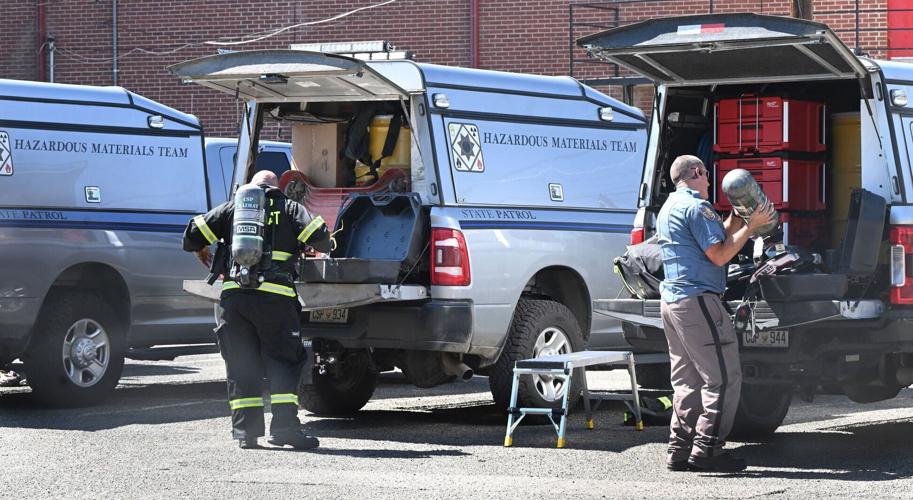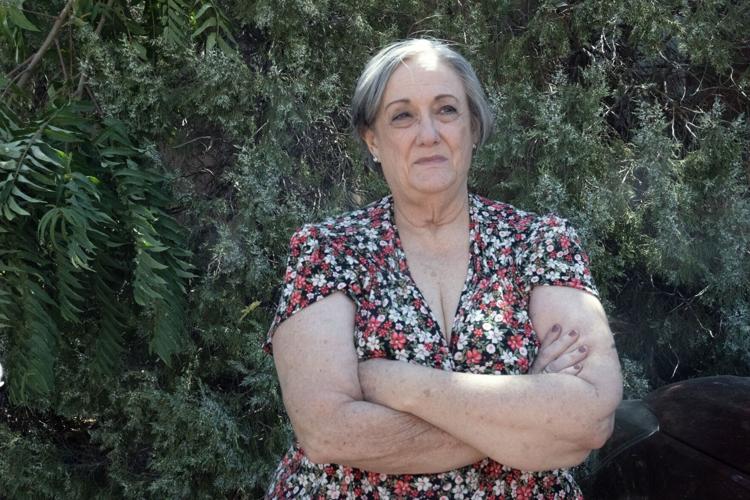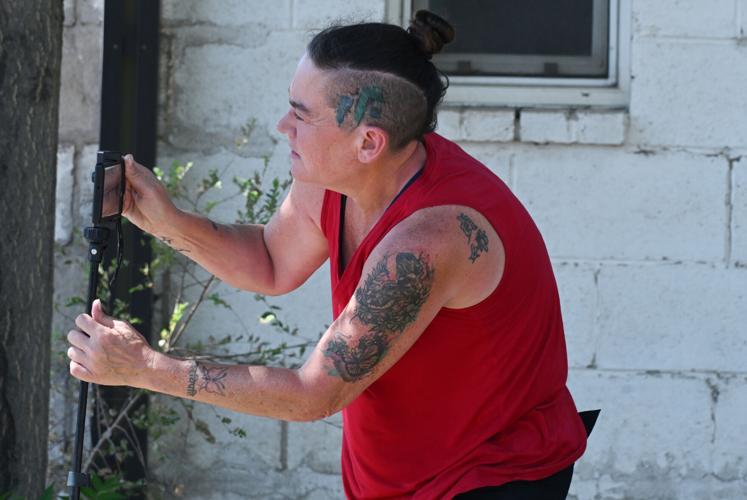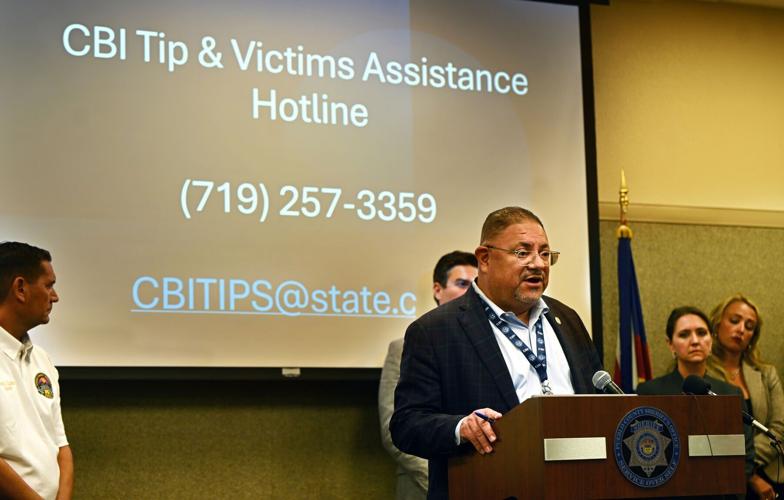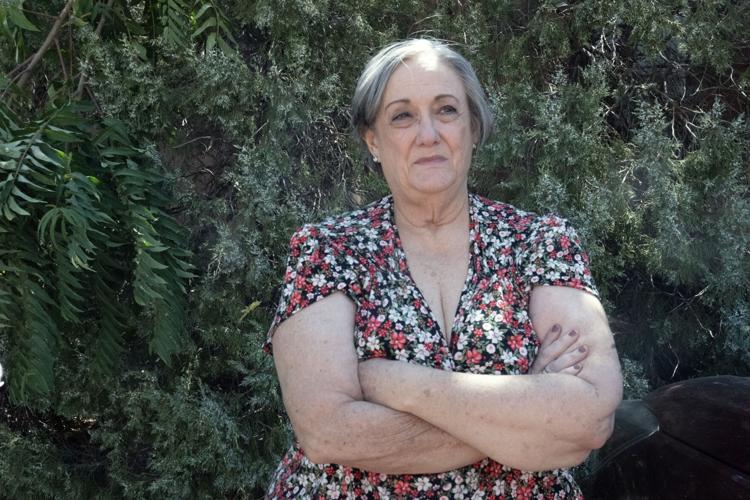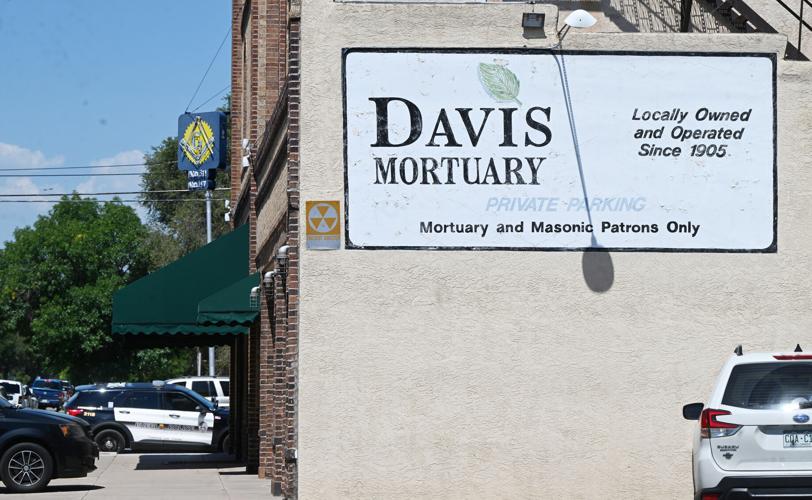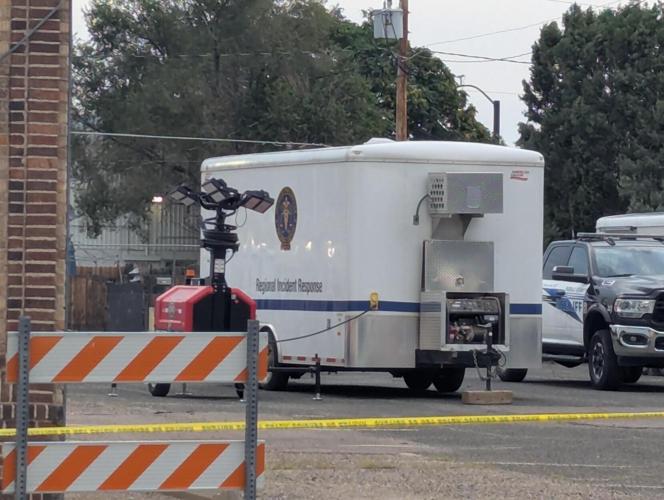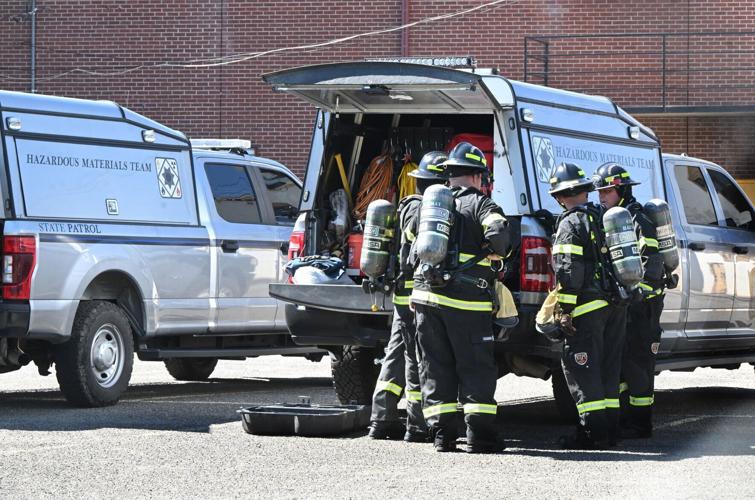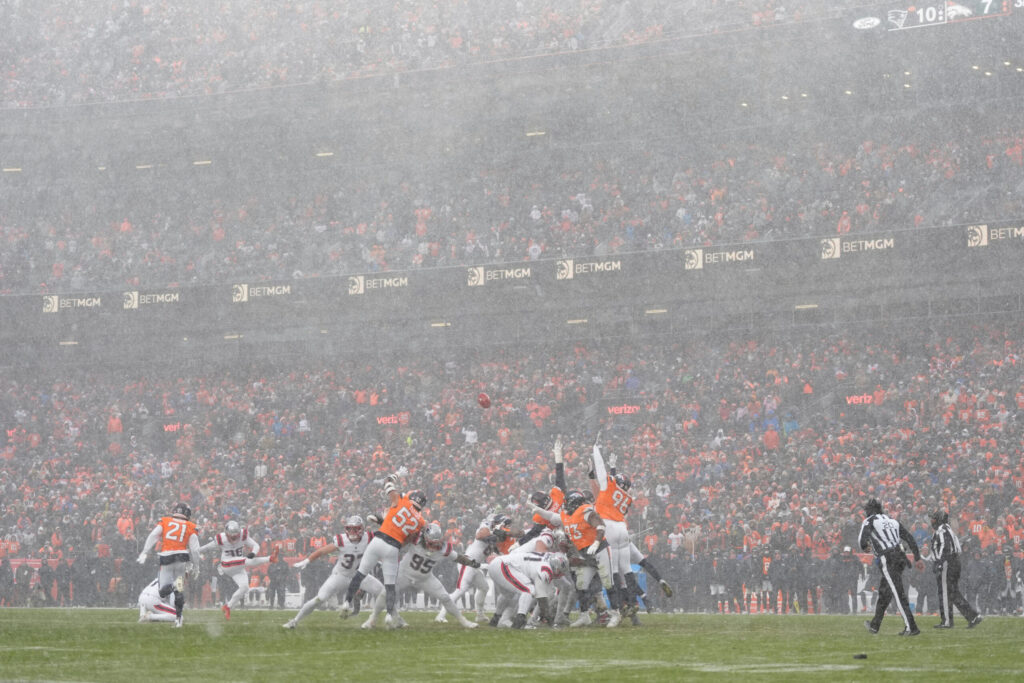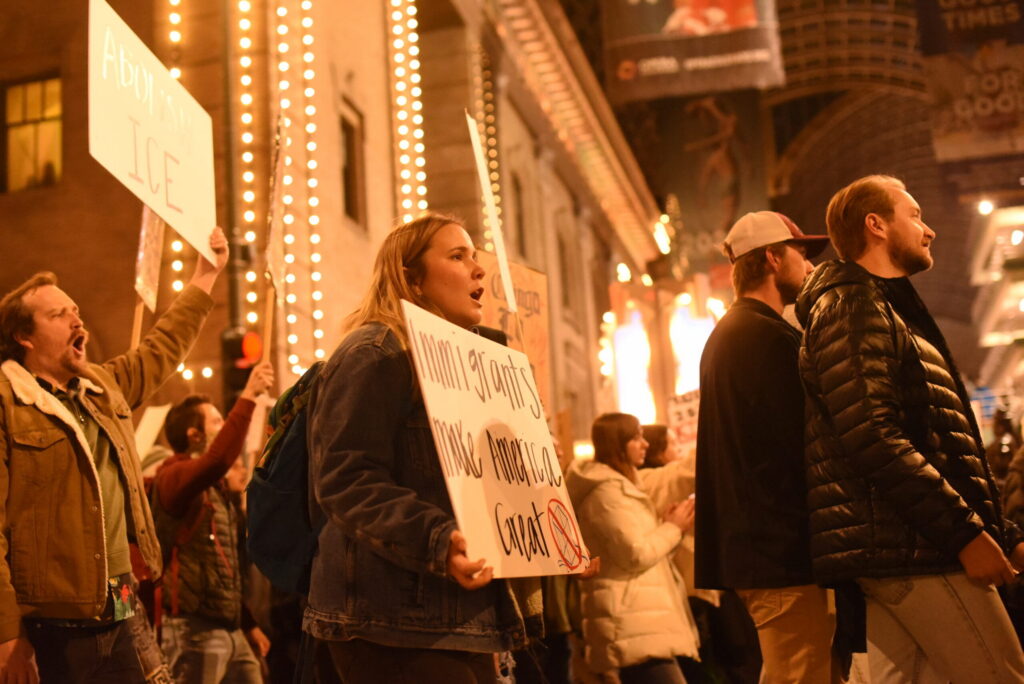Renewed questions of public trust in Colorado funeral homes following Pueblo discovery
Two years after the discovery of almost 200 decomposing bodies inside Return to Nature Funeral Home in Penrose, state inspectors found 24 more neglected corpses hidden inside Pueblo County Coroner Brian Cotter’s business, Davis Mortuary.
Some of those bodies, investigators said, had been hidden for 15 years, and next-of-kin were allegedly given fake ashes, making it the second high-profile Colorado case involving funeral fraud and stashed bodies in two years.
The shocking discovery once again raised questions of public trust in an industry that has only recently come under more stringent state control. Prior to 2024 legislation, Colorado’s Wild West approach to the funeral business made it the only state in the nation without professional training or licensing requirements for funeral home professionals.
State inspections also weren’t previously authorized unless funeral homes or crematories invited inspectors in, or in cases where law enforcement executed a search warrant.
The latest case, which allegedly transpired at a funeral home owned by a major county coroner, no less, has again jolted an industry attempting to regain its footing after the Penrose debacle.
Patty Emerson’s husband, Mel, was cremated at Davis Mortuary after he died from kidney cancer in 2011. When the news of the mortuary scandal broke, she was one of the first families to show up asking what had really happened to her loved one.
“When this man went into my home, he looked me in the eyes and thanked me for putting trust in him to take care of my husband. That is disgusting to me now,” Emerson said.
Emerson, who said she’s been reliving her husband’s death, has very little trust in the industry in Colorado after the discovery at Davis Mortuary. That it took so long for Cotter to resign as Pueblo coroner has only widened the chasm of mistrust, she said.
In a resignation letter written by Cotter’s legal counsel, it states Cotter’s resignation, with an effective date of Tuesday, is his “final act of public service” to the community he “holds dear.”
Emerson cast her doubts.
“If he was so dedicated to this community and held it so dearly, he would never have perpetrated the acts that he has already admitted to,” she said.
Others voiced their broken trust in Davis Mortuary to Gazette news partner KOAA at a vigil held outside the establishment a week ago Friday.
“In anything that we do, once people lose trust in you, that’s a hard thing to get back,” said Matt Whaley, president of the Colorado Funeral Directors Association.
Gary Montgomery, the funeral director for Montgomery & Steward Funeral Directors in Pueblo, said their business has received hundreds of calls from families asking if their loved ones are being properly taken care of following the news at Davis Mortuary.
“This is one of those things where, just like any industry, it puts a black eye on their perception of what we do,” Montgomery said.
Regulations followed Penrose trail
After the massive incident in Penrose, lawmakers started to take action.
Before last year, regulations in Colorado were less stringent compared to other states, Whaley acknowledged.
Prior to the legislation, signed into law by Gov. Jared Polis on May 24, 2024, those working inside funeral homes or crematories did not need a certificate, special education or license. Instead, the establishments were required to renew a business license annually.
“Who would have ever thought you should ask a mortician if they have a license?” Emerson said.
At the time, Colorado was one of 50 states that did not require its funeral home and crematorium employees to receive any kind of professional training or education.
In 2023, the Office of Funeral Home and Crematory Registration, run by the Department of Regulatory Agencies (DORA), published a review showing that out of more than 300 funeral homes listed — many with multiple locations and licenses — there were some 140 disciplinary actions taken.
They ranged from cease and desist orders, suspension of the state’s license to operate or referrals to the Office of Administrative Courts for further legal action. These disciplinary actions stemmed from voluntary inspections by funeral home owners or from operating without a business license. Regulations prior to the Penrose case were more difficult to enforce, but did exist, according to the DORA review.
With the new laws, that situation has improved, Whaley said. The two bills signed into law introduced higher standards for funeral homes and mortuaries and licensing requirements for professionals in the industry.
The Regulate Mortuary Science Occupations bill (SB 24-173) required professionals to pass background checks, graduate from an accredited mortuary science school and have workplace learning experience of a year or longer, among other requirements. The bill excluded cremationists and reductionists.
The Sunset Continue Mortuary Science Regulation bill (HB 24-1335) added extra regulations and standards for funeral homes and provided $339,196 for DORA to enforce them.
Inspections have also become more frequent.
Whaley said the eight facilities he works with in northern Colorado weren’t inspected prior to the recent laws. Now, the establishments have already been inspected at least twice.
Inspections can be done at any time of day, and the establishment isn’t given notice, according to the state’s mortuary science code.
Since the passing of the rule mandating annual inspections, 193 have been completed, and there are 95 left, said Lee Rasizer, a spokesperson for DORA.
There has been one suspension, one revocation, 14 letters of admonition and 57 letters of concern issued to Colorado funeral homes that were a result of complaints and inspections since May 2024, Rasizer said.
“Since funeral homes and mortuary sciences is a director-model program, and not overseen by a board, it is at the discretion of the Director of the Division of Professions and Occupations whether violations are severe enough to warrant disciplinary action. The director will consult with attorneys from the Office of the Attorney General when necessary to review violations and possible sanctions,” Rasizer said.
To Whaley, the inspections serve as a “really good” check and balance for the industry that can help funeral homes improve.
Still, public trust has been lost, he acknowledged, and a big concern among funeral directors is how they can get it back.
“A lot of trust is put on us. I mean, we (can) go into someone’s home for someone they’ve been married to for 63 years. It’s a big burden that you’ve inherently taken. And a high majority of us take that responsibility extremely, extremely seriously,” Whaley said.
He said he and other funeral directors believe the notorious cases of late are a few bad apples, and not representative. He also said Colorado isn’t the only state where funeral homes have been found to have mishandled bodies.
Tri-State Crematory in Noble, Ga., was shut down in 2002 after almost 340 bodies were found decomposing, tucked into “vaults and sheds” around the crematorium’s grounds, according to reporting by the Los Angeles Times.
Prior to the discovery of those corpses, Georgia law did not require crematories to be inspected or to have licenses. Now, crematoriums in Georgia must be licensed and are subject to inspections twice a year.
Mandatory inspections may help funeral homes to be more open and transparent, something that Whaley says is essential to rebuilding trust.
Colorado’s problematic funeral homes did not begin with Penrose.
In 2018, Sunset Mesa Funeral Home in Montrose was shut down after the operators were caught selling body parts and entire bodies without consent from next of kin, according to previous Gazette reporting.

The Sunset Mesa Funeral Home in Montrose. The funeral home was shut down by the state in 2020 after the owners were arrested on suspicion of selling body parts, and sometimes full bodies, of people whose families had brought their remains to be cremated.
The two owners of Sunset Mesa were convicted of selling the body parts of hundreds of victims and shipping remains via mail to buyers.
The two also illegally shipped the bodies and body parts of individuals who died from infectious diseases like Hepatitis B and C, and HIV, after assuring buyers that the bodies were disease-free, previous reporting states.
Four years later, in 2022, the cremains of over 30 people were found in a funeral home director’s house in Littleton.
Miles Harford, owner of Apollo Funeral Home, was in the business for 12 years before Apollo’s license was revoked and he was convicted for failing to properly handle cremated remains, according to previous Gazette reporting.
When police searched Harford’s Denver house, they found the cremains stored in unmarked boxes and urns, and the decomposing body of a woman who was scheduled to have been cremated more than a year earlier.
In 2023, the Las Animas County Coroner, Dominic Verquer, was accused of improperly disposing of at least two homeless people and pocketing state funds allocated for their burials, according to reporting by Gazette news partner, KOAA.
The Colorado Bureau of Investigation determined in 2024 that though Verquer did bury “multiple” bodies on top of each other without notifying the cemetery owner or next of kin, but would not face criminal charges.
Other states do not allow individuals to practice as both a coroner and a private funeral director simultaneously. Idaho’s laws state coroners can’t perform any of the “services of a funeral director or mortician.”
Colorado law recognizes a conflict of interest, stating that coroners cannot “direct business” to the coroner’s own “establishment when performing his or her duties.”
Return to Nature, Davis Mortuary cases continue
Jon and Carie Hallford, co-owners of Return to Nature, pleaded guilty to 190 state counts of corpse abuse in November. The co-owners were also sentenced to 15 and 20 years in federal prison for a wire fraud case connected to the funeral home.
A 4th Judicial District judge rejected a state plea agreement for Jon Hallford a week ago Friday during what was expected to be his sentence hearing. His next hearing is set for Sept. 12, during which his case could be set for trial. Carie Hallford’s sentencing on the corpse abuse charges has not been scheduled.
Brian Cotter, along with his brother Chris, have yet to face charges for the discovery at Davis Mortuary. Investigators executed search warrants at the brother’s homes Tuesday. Neither of the Cotters have been questioned as they both retained legal counsel, and law enforcement has stressed they are flight risks.
Following the discovery at the mortuary on Aug. 20, Cotter’s resignation letter stated he was hospitalized for a cardiac event.
Investigators also found multiple containers of bones and several containers of “probable human tissue” that belonged to an unknown number of deceased individuals at the mortuary. All of the remains were transferred to the El Paso County Coroner’s Office to attempt identification.
The two brothers purchased Davis Mortuary in 1989. Brian Cotter is listed as the president of the business, with Chris Cotter as a secretary, according to business records sent to the Colorado Secretary of State from 1992. The funeral home, which touts itself as southern Colorado’s first crematory in 1971, has been around for 120 years.
Emerson thinks the investigations and recent regulations are steering the state onto the right path, adding that she has plans to be a proponent for more reforms in the future.
“I think people need to get involved. That’s the only way things are going to change. I would hate for another incident like Penrose, for more new laws (to happen),” she said.
But the uncertainty of whether the ashes inside a urn at her home are really her husband still lingers.
“I’ve had nightmares about this. I feel sick, physically ill when I think of those bodies, and these containers,” she said.







